I’d like to tell you a story of a woman, kidnapped and enslaved at a young age. Hollywood would be tempted to tell the tale of her becoming a jaded, hardened badass who fights back against such a system, freeing herself and perhaps exacting revenge on her captors. There is an empowerment in that, sure (even if it’s not inherently healing), but in speculative fiction there’s much to be gained from experiencing the lives of women outside of this Stock Type too. Amazingly, the story I’m describing did exactly that.
She ended up being freed as a young adult by another woman, one who apparently wants to make the world a better place, and chose to commit her life to that cause, even though she was by no means required to do so. During her time, she made a true empathetic connection with another former-slave and victim of sexual violence—in his case, sexual mutilation. The two worked alongside one another and became trusted advisors, going as far as to challenge the racial privilege of the second-in-command, even if ultimately conceding in their plans; they seemed to feel that incremental improvement is better than nothing. Through each other, they found solace and an ability to begin to process their trauma and move towards healing.
When their survival seemed at its most uncertain, they pursued a physical relationship together—one with a heavy focus on trust, consent, and mutual understanding. Truly, something meaningful transpired there, and demonstrated how there are different ways in which women might navigate their own traumatic pasts to reclaim their agency and begin to heal.
Anyone who’s kept up with Game of Thrones will know immediately that I’m telling the story of Missandei of Naath, as portrayed by the HBO program. And anyone who’s kept up should also immediately recognize what an anomaly this is. There’s usually no place for a character like Missandei on David Benioff and Dan Weiss’s show, and frankly there was no place for her once her rather tasteful love scene with Grey Worm ended. In Thrones’s final episode of Season 7, the two of them didn’t even get a reunion, or any acknowledgement of each other (I’d have taken a headnod), though we were thankfully able to be reminded of how significant Podrick Payne’s penis was in the eyes of Bronn.
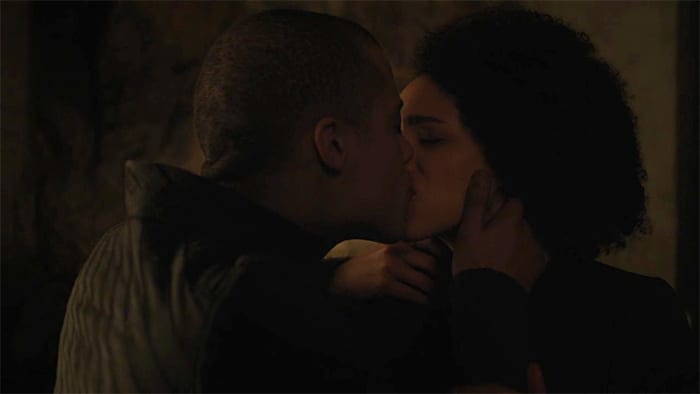
Thrones is not sexist because Missandei and Grey Worm were booted to the sidelines after the second episode this year; they were booted to the sidelines because it is a show where a sexist approach to storytelling is thoroughly woven into its fibers. For three years now I’ve attempted to break this down, from explaining how the tropes employed in Season 5 revealed misogynistic assumptions on the part of the writers (likely unwittingly, but how is that helpful?), to the sloppy way in which Season 6’s worldbuilding rendered any type of female empowerment worthless, though there was (of course) only one sexist pathway to it anyway.
Well here I am looking back at Season 7 with no clue how to begin explaining something that is more or less the show’s defining feature. Yes, it is still that sexist.
“But there’s lots of women in charge of things! This was the season of two queens and Sansa running Winterfell!” someone might reasonably say. And this is the crux of the issue and why, in my opinion, the show falls victim to such sexist writing in the first place. Because feminist storytelling isn’t merely shoving women into positions of power and then jumping up and down ‘yas queening’ them. It’s providing a narrative with feminist takeaways for the reader/viewer.
In speculative fiction, gender dynamics should be portrayed (along with any other kind of system of oppression) in a way that provides insight or forces the audience to think about the different struggles of different people within that society, which inherently drives conversations for what this means in our own world. So this means that the difficulties faced by the characters of Thrones as a result of the toxic patriarchy in which they live have to have meaning for there to be a feminist takeaway. A woman simply existing in a position of power offers no inherent challenge other than “try to find a dialogue on the internet about this character that doesn’t result in sweeping judgements about the capacity of all female rulers being made.”
Because of course those generalizations would be made! Of course there are people who think, of all things, that Thrones actually capitulated too much to ‘SJWs’. Jon Snow knelt to a woman—a woman—I say! If anything the only sexism on this show is…is…sexism against men.
Sorry, I’ll stop roleplaying as a redditor, but this is not an “out there” stance taken on the show. It is, however, an incredibly superficial one, and one I believe the showrunners have taken as well. Women merely being in a position of power is an end in itself, and a progressive one at that.
But…this completely ignores their actions in power, as well as the sexist tropes and assumptions that serve as the foundation for the writing in the first place. It’s nothing but a facade of feminism, and one with dangerous misogynistic messages lying just underneath.
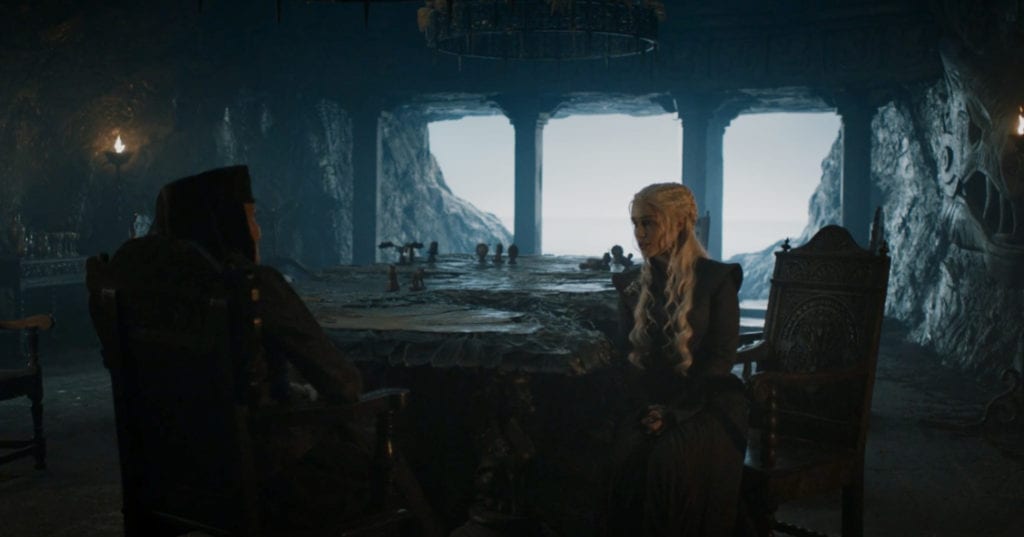
Be a Dragon
Rather than breaking everything down into discrete tropes or reexamining the faux-empowerment of violence/revenge, I think it’s more constructive if we zoom back on the whole of season 7. Part of that is because nothing really happened, but another part is that the scripting of everyone was all over the place. Remember when Cersei appeared for just one scene, where Tycho Nestoris praised her for a gold delivery that was en route? In isolation it’s fine enough, but at the same time: what the hell was this? Were we meant to side with him? Were we meant to be upset when Daenerys attacked said gold (or…not, apparently)?
Scenes just sort of seemed to…happen this year.
That messiness aside, it’s clear that one of the central driving tensions was the War of the Two Queens: Daenerys and Cersei. They both burned down religious institutions last year to bring about their respective queenships, and the people who might have been upset about said religious institutions burning down were turned into their ardent supporters.
“The Iron Bank appreciates how you cast off the yoke of superstition, freeing the crown from elements who sought to subvert the rule of law.”
Sure.
Then throughout the season, they oversaw their troops and worked to solidify political alliances as they clashed in the battlefield. When a far bigger threat to their ultimate survival was revealed, they both came together to discuss this and agree to a truce, one that Cersei had no intentions of upholding.
This sounds great, doesn’t it? I mean sure, in a setting such as Westeros where we’re told that Sansa’s rape was an inescapable reality of the world, you would think they’d have both had some difficulties being treated seriously as political threats, but that’s its own issue. It was still two powerful women vying for the most important position in the land.
Except…they were both somehow remarkably passive during the whole thing. Sure, we got Olenna’s completely empty advice to Daenerys:
“Will you take a bit of advice from an old woman? He’s a clever man, your Hand. I’ve known a great many clever men. I’ve outlived them all. You know why? I ignored them. The lords of Westeros are sheep. Are you a sheep? No. You’re a dragon. Be a dragon.”
Okay, go be some grapes, Olenna. Is this what Benioff and Weiss think female empowerment looks like?
However, throughout the season Daenerys did listen to clever men. That’s kind of all she did. Tyrion proposed the world’s worst battle strategy, because it was “more humane” to slowly starve an entire city and split her troops than to directly strike her enemy, and she agreed. When that blew up in their faces, she wanted to take her dragons to end the war, but first asked Jon what he’d do, who talked her out of attacking King’s Landing. Instead, she took one dragon and attacked the Lannister soldiers, which was intercut with shots of Tyrion looking very worried, and ultimately framed as a bad thing when she used Drogon to execute Lord Tarly and his son for refusing to bend the knee.
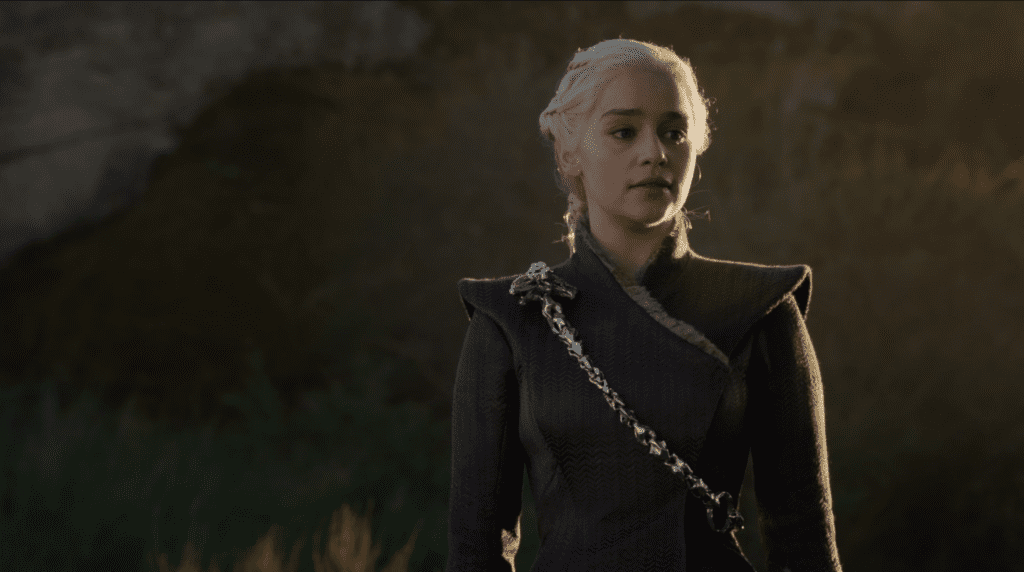
She then signed on to Jon and Tyrion’s god-awful “let’s capture a wight” plan because Jon convinced her that she needed to fight in the North and this clearly was the only path towards a totally necessary truce with Cersei (sure). Her one great, proactive choice in this, to not listen to Tyrion, was so that she could save Jon’s stupid face from the idiotic mission (he asked nicely). Finally, she spoke about four words to Cersei during the truce negotiation, instead giving Tyrion and Jon the floor and only adding a quick “I didn’t believe it myself” to back up their points.
Nothing that changed for her politically was through any decision of her own. Hell, when she had her coalition of Badass™ women gathered around a table, it was only Tyrion who volunteered a plan, and it was an objectively terrible one at that. Was this supposed to be meta commentary on how dumb the male characters are? Because it wasn’t framed that way at all.
Jon was heroic. We know that because he swung his sword a lot at bad guys. Then Tyrion was presented to us as wise and rightfully concerned about Daenerys’s nature. Her best attribute that he listed was her willingness to listen to him. In fact, the two driving tensions in her plotline were whether or not she’d schtupp Jon, and whether or not Tyrion could control that horribleness of hers.
Tyrion: I can’t make her decisions for her.
Varys: That’s what I used to tell myself about her father. I found the traitors, but I wasn’t the one burning them alive. I was only a purveyor of information. It’s what I told myself when I watched them beg for mercy– I’m not the one doing it. When the pitch of their screams rose higher– I’m not the one doing it. When their hair caught fire and the smell of their burning flesh filled the throne room– I’m not the one doing it.
Tyrion: Daenerys is not her father.
Varys: And she never will be– with the right counsel.
#feminism
The voices leveraged in Dany’s plotline? Men. The proactivity and planning? Men. What did she do? Apparently not much aside from advocating for the brutal murder of her adversaries, which we were supposed to find very concerning.
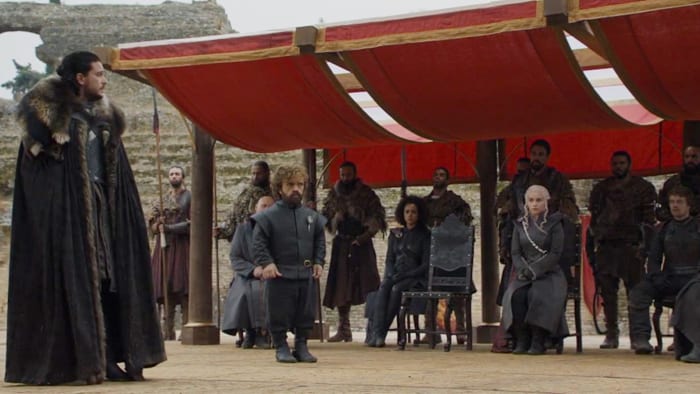
Then there was Cersei, who I’m not even sure what to do with. I know she’s supposed to be absolutely unhinged. She blew up the sept. We were told over and over how bad she was, both in- and out-of-verse.
“All that’s ever mattered to Cersei is her children, and, in relatively short order, Cersei has lost all of her children. She now is in a very dark place, and all she really has left is power for the sake of power.” —D.B. Weiss.
However, in this season, she was once again a super reasonable actor. She convinced Reach bannermen to join her cause using the stigma of the Dothraki and dragons against them, she acted as the stable establishment to the point where the Iron Bank representative was actually praising her for blowing up the sept because it had freed the people from superstition, and her point against signing up for this “let’s fight the army of the dead together so you can then turn around and crush me” was a valid one, even if it was apparently too much for Jaime. Hell, she was even the one decidedly in charge of where to commit troops. She orchestrated an off-screen deal with Euron to ensure her army would remain in a strong position, plus she was the only mind anyone was trying to change during the entire final episode.
And we were told how evil she was.
We were told that this woman, with a reasonable approach to governance and a realistic assessment of her own military capacity, was the worst person ever. Thought her baby would have made her care about humanity? Well you were wrong! We can have a discussion about what she should have done and what was moral to do in the face of the wight (just ignore that zombie guarding her), but it’s really an exercise in futility.
Cersei is evil. She’s turned on by violence (evidenced by Tyene’s death), and her political ambition is framed as a terrible thing because it’s just a selfish “dynasty for herself.” Women don’t get to want power or do anything unilaterally from such a position without being antagonists, even if we know the only reason Cersei attained it was for her literal survival.
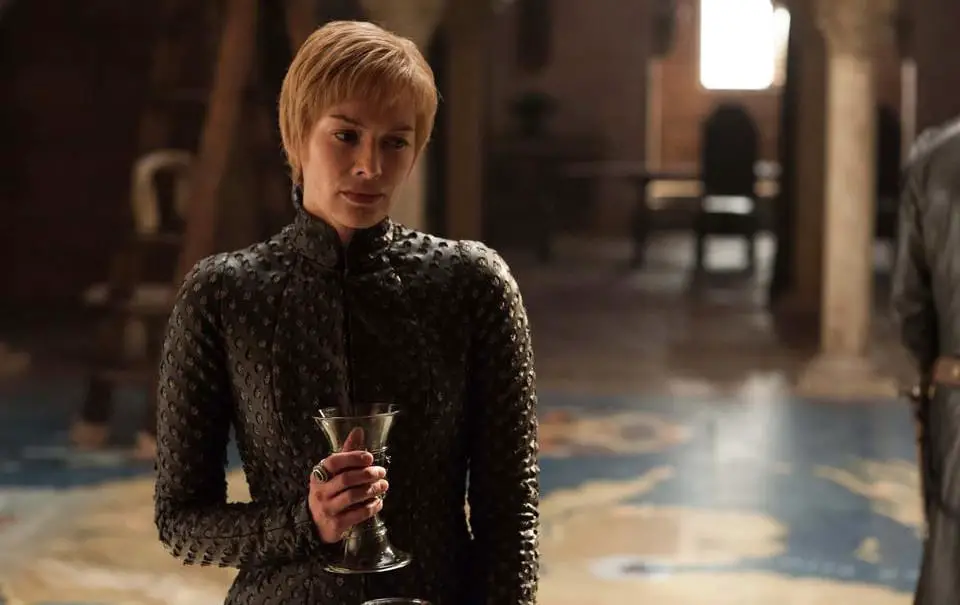
The war of two queens was sexist nonsense, and in the end, it really just served as a pleasant backdrop for Tyrion’s struggles as Hand, Jaime’s reaching his breaking point with Cersei, and Jon going off on his super exciting action mission. Infantilized and controlled woman = good, but only if they listen to their men. What feminism.
A Little Game
There was more or less one other plotline in the entirety of Season 7, since Sam at the Citadel is barely worthy of thought. I’m speaking, of course, of Winterfell, which believe it or not, was fairly promising in terms of offering a relatively feminist plotline.
I have a feeling we were supposed to be more on Jon’s side than Sansa’s with their early bickering, but once he left for Dragonstone, she was left to run the entire North and did a darn good job at it. Sure, she was doing it in vampish attire, but we saw her handling the Northern Lords with grace, and worrying about things like grain stores and proper armoring for the cold. It was all a bit basic, but nothing particularly revenge-filled or violent.
However, all that went up in smoke the second Sansa was reunited with her siblings. Arya was instantly suspicious of the way she was running things, since they were going over well with the Northern Lords, unlike the King who Pissed Off Out of the North. This then led to a bizarrely escalating tension between the sisters, where not only did they not get along, but Arya threatened to outright murder Sansa and steal her face. “Catty women” is a sexist trope, and one Game of Thrones has a long history with, but this was an entirely new level.
What’s weirder still is that while this may have worked in a kind of “oh god, look what Arya’s become” way, it was instead played as this reasonable beef between them. Arya took to blaming Sansa for the downfall of House Stark, and the damning evidence—a letter Sansa had been forced to write to Robb asking him to bend the knee to Joffrey—was evidence that Sansa herself feared, meaning it must have been a somewhat valid point on Arya’s part.
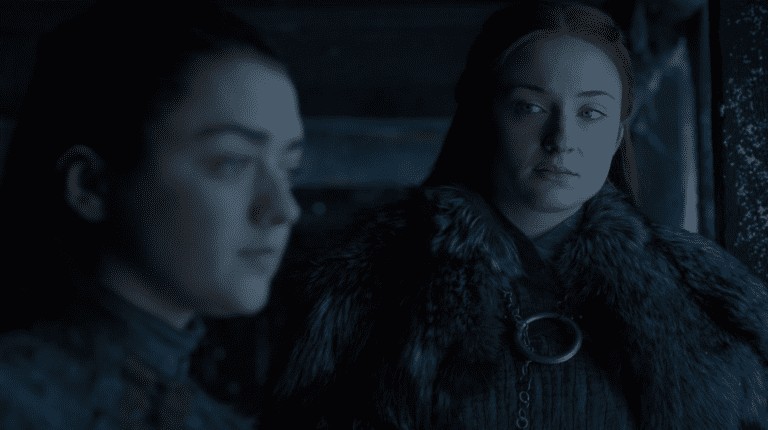
Then…were we supposed to find Sansa’s “ambition” a concern? When she and Jon would snipe at each other, it was his word that was the final say, and his decisions were usually presented to us in a positive. We also saw her likening herself to Cersei saying that she had “learned a lot from her” (because she was reasonably pointing out a threat to Jon). Later the weather vane Northern Lords seemed about ready to oust Jon as king and replace him with Sansa. Was there the implication that if Arya hadn’t been giving her the stink eye, she would have been tempted by this? Because there was no evidence of that whatsoever in her words or actions.
Finally, there was a bizarre fascination in Winterfell with female clothing. First, Lyanna Mormont stood up and announced that she had no designs to knit and instead wanted all women to fight, because #feminism and what army has ever needed socks in the wintertime? Then we got not one, but TWO scenes of Stark siblings recalling how Sansa was wearing a “pretty” dress just before something traumatic happened to either herself or her family: namely her rape and Ned’s beheading. Was the connection between the expected performance of femininity as demanded by Westerosi custom and these horrible events supposed to be there? If Sansa had been a “badass” like her sister and worn leather action outfits, would these have been prevented?
Collectively, everything painted a picture condemning any feminine-coded activity, which once again falls into this show’s pattern of only allowing a toxically masculine mold of empowerment. Hell, even the resolution of the plotline was part of this, since the way Sansa got Arya to no longer want to kill her was by ordering Littlefinger’s execution and getting revenge for their family. Then, when Arya tried to sort of apologize by saying Sansa was doing a pretty bang-up job running Winterfell and she couldn’t have done it, Sansa disagreed and called Arya the “strongest person” she knows, which was played completely earnestly.
Why was Arya’s character even remotely portrayed as reasonable or praise-worthy to us? She came in, didn’t seem to have the ability to empathize with any of her family members, only showed an interest in fighting, and immediately became suspicious to the point of threatened murder because Sansa was doing her job. And since this entire plotline was one idiotic bait-and-switch so that the viewer could be so SURPRISED by Littefinger’s death, how is this the best execution of it that Benioff and Weiss could come up with? Is this truly how they think two sisters with differing personalities would act after years of trauma and separation from one another? Is it that difficult to conceive a world in which women can get along and lift each other up?
The answer is, of course, yes. Benioff and Weiss still are woefully inept at writing women outside of their Badass Action mold, because that’s the only acceptable behavior for anyone. Women exerting agency in a different way? Well, they’re evil like Cersei, or cause for concern, like Sansa’s apparent political aspirations. Hell, they’re woefully inept at writing men like this too, which is why Theon had to beat an Ironborn to death to make his point.
Remember kids, violence and physical fighting capacity make you a strong character, and that’s not based on patriarchal nonsense at all!
The Reality of the World
It’s kind of funny, in some ways, that another thing Benioff and Weiss are completely unable to write is actually the patriarchy itself. You see, this whole “this world needs violence against women because realism” thing, or even the fact that we’re supposed to be celebrating Cersei and Dany as queens, only really works if there’s a system they triumphed against. Again, character struggles have to actually mean something for there to be a feminist takeaway. Otherwise it’s just random crap happening on our screens that may or may not feature women.
But, like I detailed last year, the patriarchy only exists sometimes, usually as an excuse for something bad happening to women. For it to exist all the time, that would require the writers to put themselves into the shoes of their female characters and really think how such a system might affect them, and…the awfulness of the two major plotlines I just described above wouldn’t exist.
If there’s a patriarchal system, then why would Ed Sheeran and his merry men not even ask Arya who she is, or where her lord father was, or if she needed accompaniment wherever she was heading? A young girl alone in the woods would be something for concern, no? But then in the same episode, Arya refuses to kill the women of House Frey (not like they can pass on the line, I suppose), because…? Feminism? Because she knew they were oppressed by a system? But is this the same system where no one blinked an eye at Queen Cersei despite her living brother being there, despite the fact that she blew up the smallfolk’s religious institution (and even Hot Pie knew it), and despite the fact that she was the same woman they had seen paraded naked through the streets—presumably to shame her?
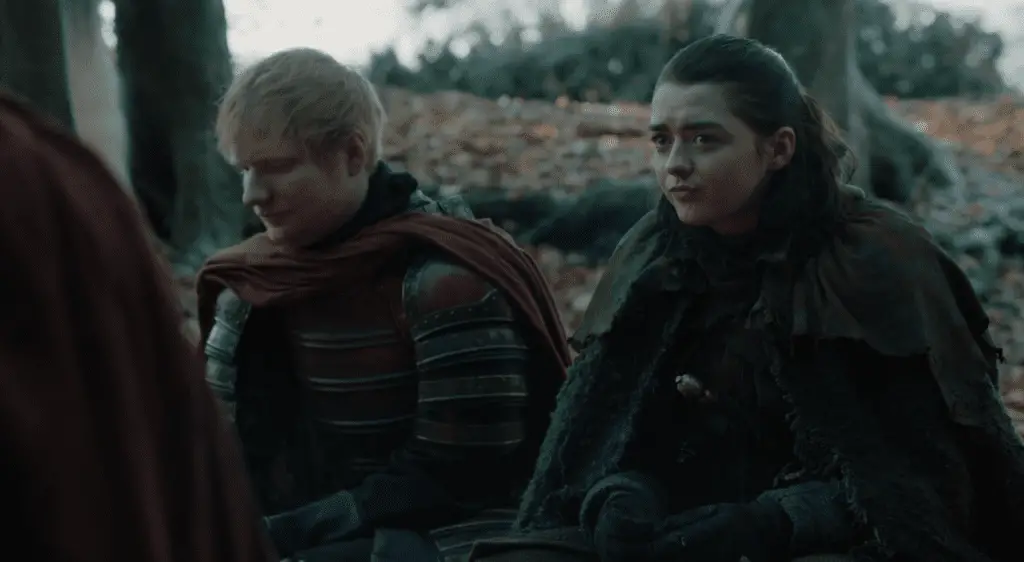
At a certain point, we may just have to accept that the worldbuilding of this show is as sloppy and shoddy for gender dynamics as it is for travel speeds of ravens and Gendrys. In my view, it’s really not worth re-litigating the Magically Disappearing Patriarchy because Season 7 just didn’t even bother trying to include it. Lyanna Mormont wanted women to stop knitting, and everyone cheered. The Northern Lords were suddenly aware that Sansa might be a suitable candidate to serve as their Queen in the North, even though they all missed that fact last year. It simply didn’t matter, which is why the mere fact that it’s Queen Daenerys doesn’t matter either. Though the show likes to pretend it does.
What were the character actions? Whose voices were empowered? What was the messaging? Exactly what it’s been for the past few years. This was a season with Action Men doing Action Things, while women bailed them out, fought among themselves, or were horrible evil assholes for trying to get things done on their own. But hey, at least Missandei managed to tease out a slice of meaning.

